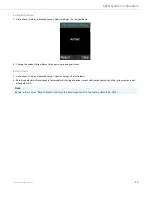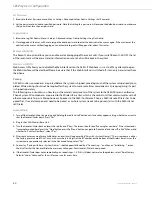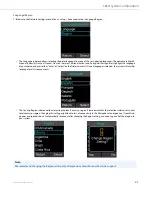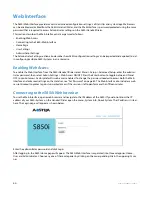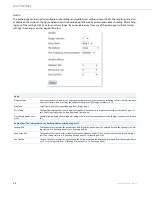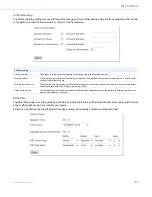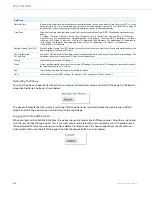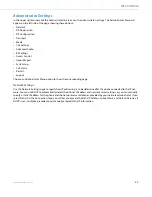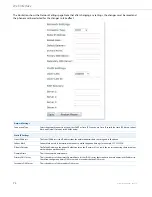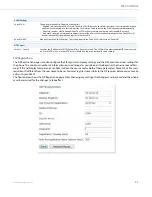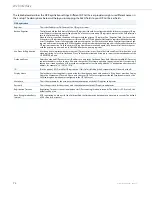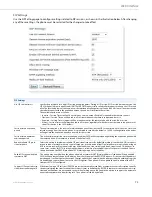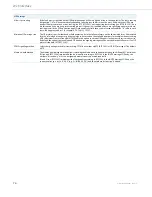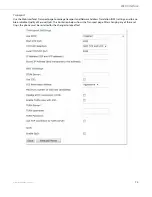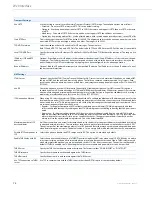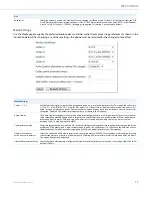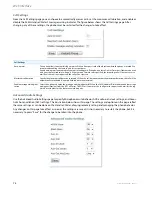
Web Interface
41-001516-00 REV00 – 06.2013
73
SIP Settings
Use the SIP Settings page to configure settings related to SIP sessions, as shown in the illustration below. After changing
any of these settings, the phone must be restarted for the changes to take effect.
SIP Settings
Use SIP session timers
Specify the preference for using SIP session keep-alive timers. During a SIP session, if SIP session timers are active, the
SIP User Agent (UA) periodically sends INVITE or UPDATE requests (also called refresh requests) to keep the SIP session
alive. The interval and use of the keep-alive is determined at call negotiation. If one of the UAs in a call does not receive
the refresh request within the expiration timeout period, it will terminate the session.
The available options are as follows:
•
Inactive – Session Timers will not be used in any session, except if explicitly required in the remote request.
•
Optional – Session Timers will be used in all sessions whenever the remote supports and uses it.
•
Required – Session Timers support will be a requirement for the remote to be able to establish a session.
•
Always – Session Timers will always be used in all sessions, regardless of whether or not the remote supports or uses
them. This option is the S850i default.
Session timers expiration
period
The expiration period is the interval at which the phone will consider the SIP session timed out if it does not receive a
refresh message from the remote phone. It is measured in seconds; the default is 1800. At call negotiation, the nodes
will negotiate the expiration period to be used for the session.
Session timers minimum
expiration period
This is the minimum session timer expiration period that S850i will accept when negotiating the expiration period with
the remote phone. It is measured in seconds; the default is 90.
Require reliable SIP provi-
sional response
Select this option to implement reliable SIP provisional responses. By default the setting is unchecked. SIP is a request-
response type of protocol with two types of responses: provisional and final. Final responses are sent reliably, using an
ACK to ensure receipt. Provisional responses by default are not sent reliably and do not require an ACK; however, in
some cases, such as for PSTN interoperability support, reliability of provisional types of responses is needed. Choose
this option to add the PRACK (provisional ACK) message support for reliability.
Enable SIP traversal behind
symmetric NAT
This option may be used when the phone is behind a symmetric NAT (Network Address Translation). When enabled,
S850i will keep track of the public IP address from the response of the REGISTER request. If it detects that the address
has changed, it will unregister the current Contact, update the Contact with the transport address obtained from the
Via header, and register a new Contact to the SIP registrar. This option will also update the public name of the UDP
transport if STUN is configured.
Suppress SIP event subscrip-
tion when transferring calls
When transferring a SIP call, the SIP REFER process automatically establishes a temporary event subscription to notify
the party initiating the transfer about the receiver’s status in handling the REFER. In some cases these event subscrip-
tions and notifications are not needed, such as when forking is not used. Enable this option to suppress the automatic
event subscriptions when transferring calls. The option is disabled by default.

